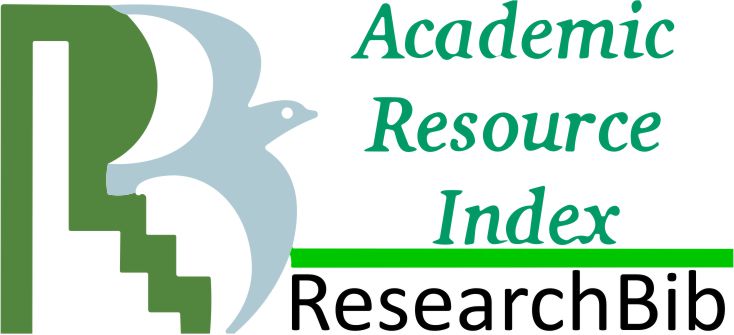DOI
10.21002/jaki.2024.10
Abstract
This research examines how the fraud square influences fraud, and investigates whether implementing tahdzib al-fard (educating individuals), part of Maqashid Sharia values, and Islamic Work Ethics (IWE), can reduce employee involvement in fraud. The study uses a quantitative approach with questionnaires for data collection, with 257 civil servants in Banten Province agencies, Indonesia, as study samples. The data were further tested using partial least squares structural equation modeling. The study reveals that pressure, opportunity and rationalization have a positive relationship with fraud, while integrity has no impact on fraud deterrence. Tahdzib al-fard significantly influences employee perceptions and attitudes towards dealing with fraud triggers and increasing integrity. IWE was found to only moderate the relationship between pressure and fraud. The research captures the prevalence of fraud in Banten Province government agencies through the lens of the fraud square. It also proposes a new measurement of tahdzib al-fard, combined with the internalization of IWE, as a promising approach that weakens the drivers of fraud and has implications for reducing the level of fraud in the government sector.
Bahasa Abstract
References
Albrecht, W. S., C. O. Albrecht, C. C. Albrecht, and M. F. Zimbelman. 2018. Fraud examination. New York, NY: Thomson South-Western.
Al-Shamali, A. et al. 2021. The Influence of Islamic Work Ethic on Employees’ Responses to Change in Kuwaiti Islamic Banks. International Business Review, 30 (5), 101817.
Aldulaimi, S. H. 2016. Fundamental Islamic Perspective of Work Ethics. Journal of Islamic Accounting and Business Research, 7 (1), 59-76.
Ali, A. J. 1988. Scaling an Islamic Work Ethic. The Journal of Social Psychology, 128 (5), 573-583.
Ali, A. J., and A. Al-Owaihan. 2008. Islamic Work Ethic: A Critical Review. Cross Cultural Management: An International Journal, 15 (1), 5-19.
Ambardi, K., M. I. Ahnaf. 2023. Aneh, Masyarakat Religius Namun Korupsi Tinggi. Accessed on 8 August 2023, https://www.voaindonesia.com/a/aneh-masyarakat-religius-namun-korupsi-tinggi/4587783.html.
Antonio, M. S., S. F. Laela, and T. Jazil. 2020. Abu Zahrah’s Maqasid Sharia Model as a Performance Measurement System. Jurnal Akuntansi Multiparadigma, 11 (3), 519-541.
Association of Certified Fraud Examiners. 2012. Report to the Nations on Occupational Fraud and Abuse: 2012 Global Fraud Study. Austin, TX: ACFE Inc.
Association of Certified Fraud Examiners. 2020. Survei Fraud Indonesia 2019. Jakarta: ACFE Indonesia Chapter.
Association of Certified Fraud Examiners. 2020. Report to the Nations: 2020 Global Fraud Study on Occupational Fraud and Abuse. Austin, TX: ACFE Inc.
Association of Certified Fraud Examiners. 2022. Occupational Fraud 2022: A Report to the Nations. Austin, TX: ACFE Inc.
Astuti, A. R. T. 2024. Islamic Work Ethics, Employee Response, and Job Satisfaction: An Exploration of Indonesian Islamic Banking Employees. Jurnal Minds: Manajemen Ide dan Inspirasi, 11 (1), 59-72.
Baits, A. N. 2021. Fiqih ASN dan Karyawan. Yogyakarta: Muamalah Publishing.
Bakri, M. H., J. Said, and N. Mohamed. 2017. Mitigating Asset Misappropriation through Integrity and Fraud Risk Elements: Evidence Emerging Economies. Journal of Financial Crime, 24 (2), 242-255.
Beekun, R. I. 1997. Islamic Business Ethics. International Institute of Islamic Thought (IIIT).
Chin, W. W. 1998. The Partial Least Squares Approach to Structural Equation Modeling. Modern Methods for Business Research, 295 (2), 295-336.
Cressey, D. R. 1950. The Criminal Violation of Financial Trust. American Sociological Review, 15 (6), 738-743.
Dellaportas, S. 2013. Conversations with Inmate Accountants: Motivation, Opportunity and The Fraud Triangle. Accounting Forum, 37 (1), 29-39.
Düşmezkalender, E., C. Secilmis, and V. Yilmaz. 2021. The Effect of Islamic Work Ethic on Person-Organization Fit and Workplace Deviance in Hotels. International Journal of Islamic and Middle Eastern Finance and Management, 14 (1), 164–182.
Haerudin, and B. Santoso. 2016. The Role of Islamic Work Ethic, Spiritual Leadership and Organizational Culture toward Attitude on Change with Organizational Commitment and Job Involvement as Mediator on Bank Pembiayaan Rakyat Syari’ah (BPRS) Indonesia. International Review of Management and Business Research, 5 (3), 827–843.
Hair, J. F., J. J. Risher, M. Sarstedt, and C. M. Ringle. 2019. When to Use and How to Report the Results of PLS-SEM. European Business Review, 31 (1), 2-24.
Henseler, J., C. M. Ringle, and M. Sarstedt. 2015. A New Criterion for Assessing Discriminant Validity in Variance-Based Structural Equation Modeling. Journal of the Academy of Marketing Science, 43, 115-135.
Huberts, L. W. J. C. 2018. Integrity: What it is and why it is Important. Public Integrity, 0, 1-15.
Indonesia Corruption Watch. 2023. Laporan Hasil Pemantauan Tren Penindakan Korupsi Tahun 2022. Jakarta: Indonesia Corruption Watch.
Irianto, G., N. Novianti, K. Rosalina, and Y. Firmanto. 2012. Integrity, Unethical Behaviour, and Tendency of Fraud. Jurnal Ekonomi dan Keuangan, 16 (2), 144-163.
Izzuddin, A., D. S. Riyadi, and K. A. S. Rahman. 2020. Syajaratul Ma’arif. Jakarta: Qaf Media Kreativa.
Jackson, P. M. 2013. Debate: Fraud Risk Management in the Public Dector. Public Money and Management, 33 (1), 6-8.
Jamieson, D. et al. 2019. Financial Shenanigans: The Importance of Anti-Fraud Education. Journal of Governance and Regulation, 8 (3), 58–63.
Januarti, I., and A. Bunyaanudin. 2006. Pengaruh Komitmen Organisasional dan Keterlibatan Kerja Terhadap Hubungan Antara Etika Kerja Islam dengan Sikap Terhadap Perubahan Organisasi. Jurnal Akuntansi dan Auditing Indonesia, 10 (1), 13-26.
Javed, B. et al. 2019. Impact of Abusive Supervision on Deviant Work Behaviour: The Role of Islamic Work Ethic. Business Ethics: A European Review, 28 (2), 221-233.
Kamaluddin, N., and S. K. Ab Manan. 2010. The Conceptual Framework of Islamic Work Ethic (IWE). Management & Accounting Review (MAR), 9 (2), 1-14.
Khadijah, A. M. S., N. Kamaluddin, and A.S.A.P. Salin. 2015. Islamic Work Ethics (IWE) Practice among Employees of Banking Sectors. Middle East Journal of Scientific Research, 23 (5), 924-931.
Khan, N. I., M. D. Fadzillah, Y. Yusof, and M. A. Emmarelda. 2020. Islamic Work Ethics and Fraud Deterrence in The Malaysian Public Sector. Al-Abqary: Journal of Islamic Social Sciences and Humanities, 22 (1), 7-25.
Komisi Pemberantasan Korupsi. 2020. Rencana Strategis KPK 2020 - 2024. Jakarta: Komisi Pemberantasan Korupsi Republik Indonesia.
Komisi Pemberantasan Korupsi. 2021. Laporan Survei Penilaian Integritas Tahun 2021 Pemerintah Provinsi Banten. Jakarta: Komisi Pemberantasan Korupsi Republik Indonesia.
Komisi Pemberantasan Korupsi. 2022. Laporan Survei Penilaian Integritas Tahun 2022 Pemerintah Provinsi Banten. Jakarta: Komisi Pemberantasan Korupsi Republik Indonesia.
Kusumastuti, D. 2019. Faktor-Faktor Kecurangan Akuntansi di Pemerintah Daerah dan Peran Etika Islam dalam Pencegahannya. El-Jizya: Jurnal Ekonomi Islam, 7 (1), 1-20.
Laela, S. F. 2014. Dynamic Strategic-Fit dan Kinerja: Studi pada Perbankan Syariah. Jurnal Akuntansi dan Keuangan Indonesia, 11 (1), 20-39.
Laela, S. F., and R. S. Akun. 2022. Etika Islami dan Kecurangan pada Profesi Akuntan Manajemen: Dampak Moderasi Kualitas Pengendalian Internal dan Lingkungan Kerja. Jurnal Riset Manajemen, 9 (2), 74-92.
Mohammed, M. O., and F. M. Taib. 2015. Developing Islamic Banking Performance Measures Based on Maqasid Al-Shari’ah Framework: Case of 24 Selected Banks. Journal of Islamic Monetary Economics and Finance, 1 (1), 55-78.
Murtaza, G. et al. 2016. Impact of Islamic Work Ethics on Organizational Citizenship Behaviors and Knowledge-sharing Behaviors. Journal of Business Ethics, 133 (2), 325-333.
Organisation for Economic Co-operation and Development. 2018. Education for Integrity. Accessed on 15 March 2022. https://www.oecd.org/en/topics/policy-issues/anti-corruption-and-integrity.html.
Owusu, G. M. Y., T. A. A. Koomson, S. A. Alipoe, and Y. A. Kani. 2021. Examining the Predictors of Fraud in State-Owned Enterprises: An Application of the Fraud Triangle Theory. Journal of Money Laundering Control, 25 (2), 427-444.
Putro, P. U. W. 2018. Etika Kerja Islam, Komitmen Organisasi, Sikap pada Perubahan Organisasi Terhadap Kinerja. Jurnal Manajemen Indonesia, 18 (2), 116-125.
Rae, K., and N. Subramaniam. 2008. Quality of Internal Control Procedures: Antecedents and Moderating effect on Organizational Justice and Employee Fraud. Managerial Auditing Journal, 23 (2), 104-124.
Ruankaew, T. 2016. Beyond the Fraud Diamond. International Journal of Business Management and Economic Research, 7 (1), 474-476.
Rustiarini, N. W., T. Sutrisno, N. Nurkholis, and W. Andayani. 2019. Why People Commit Public Procurement Fraud? The Fraud Diamond View. Journal of Public Procurement, 19 (4), 345-362.
Rustiarini, N. W., S. Sutrisno, N. Nurkholis, and W. Andayani. 2019. Fraud Triangle in Public Procurement: Evidence from Indonesia. Journal of Financial Crime, 26 (4), 951-968.
Safuan, S., I. Ismartaya, and B. Budiandru. 2021. Fraud dalam perspektif Islam. Owner: Riset & Jurnal Akuntansi, 5 (1), 219-228.
Said, J., M. M. Alam, M. Ramli, and M. Rafidi. 2017. Integrating Ethical Values into Fraud Triangle Theory in Assessing Employee Fraud: Evidence from The Malaysian Banking Industry. Journal of International Studies, 10 (2), 170-184.
Salin, A. S. A. P., S. K. Ab Manan, N. Kamaluddin, and A. Nawawi. 2017. The Role of Islamic Ethics to Prevent Corporate Fraud. International Journal of Business and Society, 18 (S1), 113-128.
Saluja, S., A. Aggarwal, and A. Mittal. 2022. Understanding the Fraud Theories and Advancing with Integrity Model. Journal of Financial Crime, 29 (4), 1318-1328.
Tarmidzi, E. 2017. Harta Haram Muamalat Kontemporer. Bogor: PT. Media Insani.
Tuanakotta, T. M. 2012. Forensic Accounting and Investigative Audit. Jakarta: Lembaga Penerbit Fakultas Ekonomi Universitas Indonesia (LPFE UI).
Vousinas, G. L. 2019. Advancing Theory of Fraud: The SCORE Model. Journal of Financial Crime, 26 (1), 372-381.
Wahid, S. 2023. Agama dan Korupsi. Accessed on 8 July 2023, https://antikorupsi.org/id/article/agama-dan-korupsi
Wells, J. T. 2014. Principles of Fraud Examination. New Jersey: John Wiley & Sons.
Wijayanti, R., V. Diyanty, and S. F. Laela. 2020. Education Strategy Misfit, Board Effectiveness and Indonesian Islamic Bank Performance. Journal of Islamic Accounting and Business Research, 11 (4), 929-944.
Yousef, D. 2001. Islamic Work Ethics; A Moderator Between Organizational Commitment and Job Satisfaction in a Cross-Cultural Context. Personnel Review, 30 (2), 152-169.
Zahari, A. I., J. Said, and N. Muhamad. 2022. Public Sector Fraud: The Malaysian Perspective. Journal of Financial Crime, 29 (1), 309-324.
Zahrah, M. A. 1997. Ushul Fiqh. Egypt: Darul Fikr.
Zaprulkhan, S. 2020. Rekonstruksi Paradigma Maqashid Asy-Syari'ah: Kajian Kritis dan Komprehensif. Yogyakarta: IRCISOD.
Recommended Citation
Qorny, Farah Nurani; Laela, Sugiyarti Fatma; and Fachrul Avivy, Ahmad Levi
(2024)
"FRAUD MITIGATION BY EMBODYING MAQASHID SHARIA VALUES AND ISLAMIC WORK ETHICS,"
Jurnal Akuntansi dan Keuangan Indonesia: Vol. 21:
No.
2, Article 4.
DOI: 10.21002/jaki.2024.10
Available at:
https://scholarhub.ui.ac.id/jaki/vol21/iss2/4












